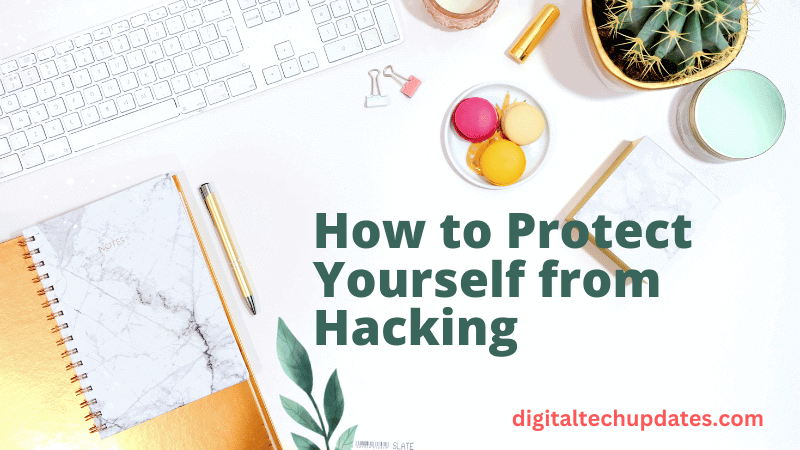With the increasing reliance on technology in today’s world, cybercrime has become more prevalent than ever. Every day, thousands of people become victims of hacking attacks, resulting in financial loss, identity theft, and other serious consequences. In this article, we will explore the reasons why you are hacked every day and provide practical tips to protect yourself from hacking.
Understanding Hacking
What is Hacking?
Hacking refers to the unauthorized access to a computer system or network. It is an illegal activity that can be carried out for various reasons, such as stealing sensitive data, causing damage to a system, or using it for other illegal activities.
Who are Hackers?
Hackers are individuals or groups who use their knowledge of computer systems to gain unauthorized access to them. They may have various motivations, such as financial gain, political reasons, or simply for the thrill of it.
Types of Hacking
According to PIA’s guide on hacking there are various types of hacking, including but not limited to:
- Phishing
- Ransomware
- Social engineering
- DDoS attacks
- Malware
Reasons Why You are Hacked Every Day
Weak Passwords
Weak passwords are one of the most common reasons why people get hacked. Hackers can use software that can guess passwords, and weak passwords are easily cracked. It is important to use strong passwords that are difficult to guess and not use the same password for multiple accounts.
Phishing Scams
Phishing scams are fraudulent attempts to obtain sensitive information, such as login credentials, credit card information, and other personal information. They are usually carried out through emails, text messages, or social media, and they often appear to be from a reputable source. It is important to be cautious of any suspicious emails or links.
Outdated Software and Systems
Outdated software and systems can contain security vulnerabilities that can be exploited by hackers. It is important to regularly update your software and systems to ensure they are up-to-date with the latest security patches.
Public Wi-Fi
Public Wi-Fi networks are often unsecured, and using them can make you vulnerable to hacking attacks. Hackers can easily intercept data transmitted over these networks, including login credentials, credit card information, and other personal data.
Social Engineering
Social engineering is the use of psychological manipulation to trick people into divulging sensitive information or performing actions that are not in their best interest. It can take many forms, including phishing scams, pretexting, and baiting.
Malware
Malware is software that is designed to cause harm to a computer system. It can take many forms, including viruses, Trojans, and worms. Malware can be used to steal sensitive information, damage a system, or use it for other illegal activities.
How to Protect Yourself from Hacking
Use Strong Passwords
Using strong passwords is a crucial step in protecting your online accounts from hacking attacks. Strong passwords are typically long and contain a mix of uppercase and lowercase letters, numbers, and special characters. It’s important to avoid using common words or personal information that can be easily guessed by hackers. Instead, consider using a password manager to create and store complex passwords for your accounts. Additionally, it’s important to change your passwords regularly and avoid reusing passwords across multiple accounts. By using strong passwords, you can significantly reduce the risk of your accounts being compromised by hackers.
Enable Two-Factor Authentication
Two-factor authentication adds an extra layer of security to your accounts by requiring a second form of verification, such as a code sent to your phone, in addition to your password.
Update Your Software Regularly
Keeping your software and systems up-to-date is crucial to ensuring that security vulnerabilities are patched and that your systems are protected from potential hacking attacks.
Be Careful with Public Wi-Fi
Avoid using public Wi-Fi networks for sensitive activities, such as logging into your bank account or entering your credit card information. If you must use public Wi-Fi, use a VPN to encrypt your data.
Avoid Suspicious Emails and Links
Be cautious of any suspicious emails or links, especially if they are asking you to provide personal information or to download an attachment. Always verify the source before providing any sensitive information.
Install Antivirus Software
Antivirus software can help protect your computer from malware and other potential security threats. Make sure to keep your antivirus software up-to-date and run regular scans.
Use a Virtual Private Network (VPN)
A VPN can help protect your online privacy and security by encrypting your internet connection and masking your IP address. This can help prevent hackers from intercepting your data and tracking your online activity.
Be Cautious on Social Media
Be mindful of the information you share on social media, as it can be used by hackers for social engineering attacks. Review your privacy settings and only share information with people you trust.
Conclusion
Hacking is a serious threat that can have serious consequences. By understanding the reasons why you are hacked every day and taking proactive steps to protect yourself, you can help minimize your risk of falling victim to a hacking attack. Use strong passwords, enable two-factor authentication, update your software regularly, be careful with public Wi-Fi, avoid suspicious emails and links, install antivirus software, use a VPN, and be cautious on social media.




